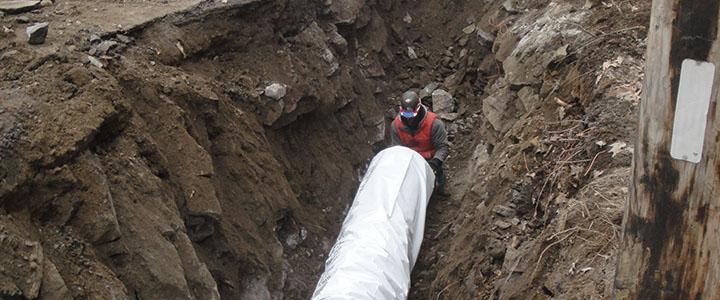
Southern New Hampshire Regional Water Project Update
The Southern New Hampshire Regional Water Project is the state’s largest regional water distribution system interconnection. Once complete, it will supply up to one million gallons of water per day from Manchester Water Works through the Town of Derry to the Towns of Windham, Plaistow, Salem and the Hampstead Area Water Company, Inc. (HAWC), which serves customers in the Towns of Hampstead and Atkinson. These communities are in need of additional water because of reduction in supply capacity due to contaminated local wells and the region’s growing population.
Since August 2020, Salem and HAWC have been connected to the project. Water is expected to be available to users in Windham in late 2020 and to the Town of Plaistow as early as spring 2021.
The New Hampshire Drinking Water and Groundwater Advisory Commission has approved $29.4 million in grant funds from the New Hampshire Drinking Water and Groundwater Trust Fund for design and construction of the project. These funds, in combination with funds from the partner water systems and other funding sources, have supported 13 construction contracts throughout the project starting in September 2019.
New Hampshire State Senator Chuck Morse, chair of the Commission, stated, “I am proud of the critical role the Commission played in financing this project and of the hard work done by my fellow Commission members. This project is truly groundbreaking, with five communities and a water utility servicing two additional communities all coming together to solve a problem in a way where everyone benefits. We have truly ‘written the book’ on how to do this, and I hope this project serves as a model for other communities across the state and encourages thinking about water not just on a town or water precinct level, but a regional level. Without all the hard work done by countless individuals at the Department of Environmental Services, and the commitment by all communities involved, this project would not have been possible.”
NHDES wishes to thank the many individuals and organizations that have contributed and are contributing to the ongoing success of the project.




